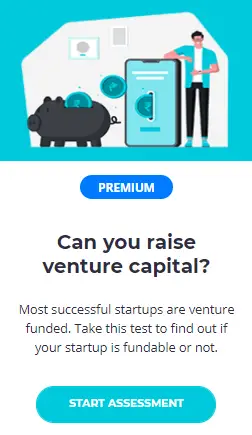What is dry powder in venture capital & startup investments?
The term “dry powder” is often associated with venture capitalists, as it allows them to have funds readily available to invest in new opportunities.
Dry powder is a term used in the venture capital industry to refer to money that has been raised but not yet invested.
VC firms typically raise money from limited partners, which can be individuals, pension funds, or other institutional investors. This money is then deployed into companies via VC firms’ investment vehicles, such as partnership funds.
Dry powder gives VC firms the flexibility to invest in companies that they believe have high potential, without having to worry about immediate returns. This can be especially helpful when investing in early-stage companies, which often take longer to generate returns.
What are the different ways in which venture capitalists can use dry powder?
One way is to invest in new companies. This could be done via a traditional VC firm structure, where the firm raises money from limited partners and then invests it into companies via a partnership fund. However, dry powder can also be used to invest in more established startups that are looking for growth capital.
Another way venture capitalists can use it is to buy out existing shareholders in a company. This could be done in order to make a control investment, or simply to increase the VC firm’s ownership stake in a company.
Lastly, it can also be used to support portfolio companies that are experiencing financial difficulty. This could involve injecting new capital into the company, or providing other forms of support such as operational assistance or restructuring advice.
What are some risks associated with dry powder?
While it can be a valuable tool for VC firms, it also comes with some risks.
Typically, increasing dry powder is seen as a negative sign, because it indicates that startup valuations are overpriced.
1. VC firms may feel pressure to invest in companies that are not a good fit.
2. There is a risk of the money not being used effectively. If a VC firm doesn’t deploy its dry powder wisely, it can end up sitting on a lot of cash that isn’t earning any return.
3. The return on investment may not be as high as expected.
4. Additionally, VC firms may be pressured to invest their dry powder quickly in order to avoid losing it to Limited Partners who might want to withdraw their money.
How dry powder will help increase startup funding in 2023 and onwards
With covid pandemic raging across the globe in 2020 and 2021, many economies are facing shutdowns and recession. This has affected businesses, with some forced to close down and others struggling to stay afloat.
In such uncertain times, venture capitalists (VCs) play an important role in providing much-needed capital to businesses so that they can continue operating.
With the pandemic almost coming to an end and life returning to normalcy, there will be a good amount of investments in startups from 2023 to 2025.
A new study of these cash reserves claims that next year’s startup entrepreneurs should expect a tsunami of venture capital interest as record levels of dry powder pressure VC funds to increase their investment pace.
Including $162 billion allocated specifically for new investments, U.S. VC investors have $290 billion in cash reserves.
However, these investments will be cautious as the pandemic has left a lot of businesses struggling.
if you’re an entrepreneur, you should pay attention to the dry powder while fundraising. Understanding how much dry powder an investor has can help founders reach out to the right firms.
Here are some of our articles on venture capital.
- How do VCs evaluate early stage startups?
- Difference between startup capital and working capital
- Why do startups need funding?
- How to get into angel investing & be an angel investor?
- How to become a VC startup scout and make money on the side?
- What are the different roles & job titles in venture capital?
- What’s the role of a Venture Partner?
- The advantages of investing in startups through an angel syndicate
- What are the different kinds of financial instruments available to angel investors and VCs for investing in startups?
- How VCs are controlling the narrative of what constitutes as a good business?
- Startup term sheets: Everything you wanted to know
- How to choose & approach the right investors for your startup?





